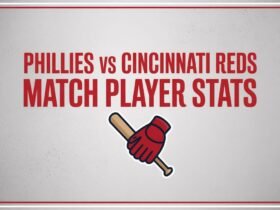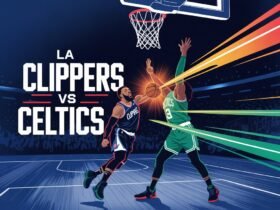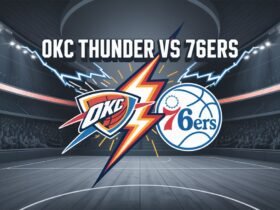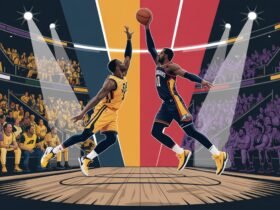Introduction
The NFL Sunday Ticket lawsuit has become one of the most significant sports and antitrust cases in recent history. What started as a complaint about expensive access to out-of-market NFL games has grown into a courtroom battle involving billions of dollars, a clash between fans and one of the most powerful sports leagues in the world, and questions about how professional sports are packaged and sold in America. With appeals pending in 2025, the case is far from over, and the outcome could reshape the way football fans watch games for years to come.
This article breaks down the latest updates, explains the history behind the lawsuit, highlights what fans need to know about eligibility and possible payouts, and examines what the future may hold.
What Is the NFL Sunday Ticket Lawsuit?
The lawsuit centers around the NFL’s Sunday Ticket package, a subscription service that historically gave fans access to out-of-market games not shown on their local CBS or FOX affiliate. From its launch in 1994 until 2022, the service was exclusively distributed by DirecTV. In 2023, YouTube TV took over as the new distributor.
Fans argued that the NFL, its 32 clubs, and DirecTV conspired to inflate prices by restricting competition. Instead of allowing teams to sell their out-of-market rights individually or enabling multiple distributors to compete, the NFL allegedly forced fans to purchase a single bundled package at a high price point. Plaintiffs—both residential subscribers and commercial establishments like bars—claimed this violated federal antitrust law by artificially limiting choice and driving up costs.
Latest Status of the Case (As of August 2025)
The NFL Sunday Ticket lawsuit has had dramatic twists. In June 2024, a Los Angeles jury sided with fans, awarding nearly $4.7 billion in damages. Under antitrust law, damages can be tripled, raising potential exposure for the NFL to over $14 billion. For a moment, it seemed like fans might see historic refunds or credits.
But the celebration was short-lived. In August 2024, U.S. District Judge Philip Gutierrez overturned the jury’s verdict in a ruling called Judgment as a Matter of Law (JNOV). He concluded that the evidence on damages was unreliable and that plaintiffs had not proven their case under the rule-of-reason standard. That meant, at least temporarily, the NFL was off the hook.
Plaintiffs quickly appealed to the Ninth Circuit Court of Appeals. The U.S. Department of Justice (DOJ) filed a rare amicus brief in January 2025 supporting the plaintiffs, arguing the case deserved another look. By mid-2025, however, multiple business groups and industry amici had filed briefs supporting the NFL, urging the appeals court to affirm the judge’s decision. The Ninth Circuit has not yet scheduled oral arguments, but the case remains active and could still end in a new trial or even a trip to the Supreme Court.
Who Is Affected by the NFL Sunday Ticket Lawsuit?
The plaintiff class includes two groups:
- Residential subscribers: Fans who purchased NFL Sunday Ticket for home use during the class period (generally dating back several years).
- Commercial subscribers: Bars, restaurants, and other establishments that paid for the service, often at much higher rates than individuals.
If the case ultimately results in a settlement or renewed damages award, both groups could be eligible for refunds or credits. Fans are encouraged to monitor the official case website for updates and to keep subscription receipts or billing records if possible.
Why Did Fans Sue? The Antitrust Theory Explained
At the heart of the NFL Sunday Ticket lawsuit is the concept of antitrust law. Fans argued that by bundling out-of-market games exclusively into one package and preventing individual clubs from negotiating their own broadcast rights, the NFL engaged in a horizontal agreement that harmed competition.
In simple terms: if teams could sell their games individually or if multiple providers could compete to sell packages, prices might have been lower and options broader. Instead, fans were forced into a one-size-fits-all product, often costing hundreds of dollars per season.
The NFL countered that its broadcast structure is essential to maintaining the league’s business model and that exclusivity deals are common in sports media. The trial and appeal have revolved around whether the NFL’s practices were reasonable under the rule-of-reason test, whether damages were calculated properly, and whether exclusive distribution is legally justifiable.
Timeline of the NFL Sunday Ticket Lawsuit
To understand the stakes, it helps to review key milestones:
- 1994 – NFL Sunday Ticket launches with DirecTV as the sole distributor.
- 2015 – Fans file the first lawsuit challenging the package as an antitrust violation.
- 2019 – The Ninth Circuit revives the case after an earlier dismissal.
- 2023 – YouTube TV becomes the new home for Sunday Ticket, ending DirecTV’s exclusive run.
- June 2024 – Jury delivers a $4.7 billion verdict against the NFL.
- August 2024 – Judge overturns the verdict (JNOV).
- January 2025 – DOJ files a supportive amicus brief, siding with fans.
- Mid-2025 – Business groups file briefs defending the NFL; appeal continues.
Possible Outcomes of the Appeal
The Ninth Circuit’s eventual decision could take several forms:
- Affirm the JNOV (NFL Victory): If the court agrees with the trial judge, the case largely ends in the NFL’s favor, unless the Supreme Court decides to intervene.
- Vacate and Remand (Fan Victory): The court could send the case back for a new trial, potentially reviving the possibility of billions in damages.
- Partial Win or Settlement: The court could narrow issues, prompting a negotiated settlement with some financial relief or changes in distribution rules.
- Supreme Court Review: If major antitrust principles remain unresolved, the highest court may weigh in.
Impact on Pricing, Providers, and Sports Bars
For years, the Sunday Ticket package cost hundreds of dollars annually. On YouTube TV in 2023–24, prices ranged between $349 and $449, depending on bundles and add-ons. Critics argue this high pricing illustrates the lack of competition the lawsuit targets.
For commercial establishments, costs were even steeper. Bars often paid thousands to broadcast out-of-market games, leading to further frustration and class participation.
While YouTube TV’s takeover brought technical improvements, it did not meaningfully reduce prices. If the lawsuit leads to structural changes, fans could one day see cheaper packages, single-team subscriptions, or more competition among distributors.
How Fans Can Check Their Claim Status
Fans who subscribed to NFL Sunday Ticket during the class period should keep an eye on the official case or notice website. If damages are eventually restored or a settlement is reached, eligible subscribers may need to file claims. Having old billing records, credit card statements, or DirecTV/YouTube TV receipts will make the process easier.
What to Watch Next
Several signals will indicate how the NFL Sunday Ticket lawsuit is progressing:
- Ninth Circuit Scheduling: Oral arguments will likely be set in late 2025 or 2026.
- Government Role: The DOJ’s unusual involvement could influence judicial thinking.
- Amicus Briefs: Additional filings from leagues, networks, or consumer groups may add pressure.
- Settlement Talks: If the NFL fears further liability, it may seek settlement before another jury trial.
Until then, fans must remain patient, but the high profile of this case ensures that updates will be widely reported.
Frequently Asked Questions
Will fans definitely get refunds?
Not yet. The overturned verdict means nothing is guaranteed. Refunds or credits depend entirely on the appeal’s outcome or a settlement.
Does this affect current YouTube TV subscribers?
Not directly. The class period predates YouTube TV’s takeover, but future distribution could be reshaped if the NFL is forced to change its model.
Why was the jury’s damages award thrown out?
The judge ruled the plaintiffs’ expert testimony on overcharges was unreliable and insufficient. The Ninth Circuit will decide if that ruling was correct.
Conclusion
The NFL Sunday Ticket lawsuit is more than a fight over football games—it is a test case for how far antitrust law can go in regulating America’s biggest sports leagues. For fans, it represents the hope of fairer pricing and more options. For the NFL, it is a defense of a system that has fueled massive broadcast revenues and competitive balance.
As of August 2025, the case remains alive in the Ninth Circuit, with billions on the line. The outcome could set a precedent not just for football, but for all sports media rights in the streaming era. Fans should keep watching closely—the next play in this legal battle could be as dramatic as any overtime thriller on the field.
Also read more interesting topics at mgtimes.co.uk.







Leave a Reply